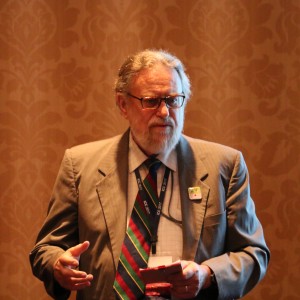![]() At the business meeting of the Commission on SDI & Standards during the ICC 2017 in Washington DC July 2017, Commission Members expressed their interest in working on quality management of geographic information. Subsequently, EuroGeographics invited our Commission to co-organise the 2nd International Workshop on Spatial Data Quality, to be held in Valletta, Malta on 6th and 7th February 2018.
At the business meeting of the Commission on SDI & Standards during the ICC 2017 in Washington DC July 2017, Commission Members expressed their interest in working on quality management of geographic information. Subsequently, EuroGeographics invited our Commission to co-organise the 2nd International Workshop on Spatial Data Quality, to be held in Valletta, Malta on 6th and 7th February 2018.
The first workshop saw a wide variety of topics. Whilst technology was already showing signs of disrupting geospatial data capture (and hence affecting the quality of data) in the intervening years the pace of such technologies has accelerated. While this poses risks to the core activities of some organisations for others it offers opportunities that they never thought possible. Traditional map making organisations are now seeing many new players such as Google, Bing and OpenStreetMap all of whom are seeing considerable success as their data is widely available and free to use despite the fact that it may not always be correct or up to date.
The increasing demand for data on mobile devices, particularly when it is free to use, has introduced a whole generation to easily accessible geospatial information. Many of them grew up not knowing what came before Sat-Navs and Google Maps with many of them being unaware of the traditional sources of authoritative data.
Today’s consumers of geospatial information range from highly skilled professionals to everyday users with little knowledge or experience of geospatial data. However, geospatial information has become more mainstream and today’s user is faced with a plethora of data coming from a variety of sources. Few have the expertise to identify the suitability or relevance of a particular dataset, often basing their choices on cost and availability rather than quality.
Producers of traditional geospatial information need to be able to produce high quality, authoritative data and communicate the trust, quality, provenance, relevance and content to all potential users – not just those in the professional community.
This two-day event aims at providing innovative and original contribution to the ongoing debate on spatial data quality.
Papers are invited on all topics related to spatial data quality, including (but not limited to):
- Quality evaluation of spatial data
- Quality certification and accreditation of spatial data
- Use of international metadata and quality standards
- Quality issues in spatial data infrastructures (e.g. national, INSPIRE)
- Communication/visualization of spatial data quality
- Spatial data usability / quality from the users perspective
- Impact of data quality on decision making
- Spatial data quality assessment
- Spatial data quality vs scales / resolution
- Applications of spatial data quality
- Quality of data from alternative sources
- Quality of geospatial services
Abstracts or complete papers should be submitted by 1st October 2017. Each abstract/paper will be independently reviewed by the programme committee members. Their individual scores will be re-evaluated and result in one of the following final decisions: accepted, or accepted on the condition that suggestions for improvement will be incorporated, or rejected. Notification of this decision will take place by 13th November 2017. Full papers should be submitted by 15th January 2018. Abstracts should be 3000-4000 characters) and complete papers 10 to 12 pages. There is also a possibility to propose a demonstration of software (this should follow the abstract track).
The entities participating in the organization of the workshop are:
- Eurogeographics – Quality KEN
- EuroSDR
- Open Geospatial Consortium (OGC)
- International Organisation for Standardisation (ISO) Technical Committee (TC) 211 Geographic Information
- International Cartographic Association (ICA) Commision on SDI & Standards
Programme Committee:
- Jonathan Holmes (Chair Eurogeographics – Quality KEN)
- Carol Agius (Eurogeographics)
- Gunhild Lönnberg (Eurogeographics Quality KEN)
- Tamás Palya (Eurogeographics Quality KEN)
- Antti Jakobsson (Maanmittauslaitos Finland)
- Christina Wasström (Chair of the ISO TC 211)
- Bart De Lathouwer (OGC)
- Ray Patrucco (OS Great Britain)
- Joep Crompvoets (EuroSDR)
- Rodolphe Devillers (Memorial University of Newfoundland)
- Serena Coetzee (ICA)
- Franz-Josef Behr (ICA)
The full workshop announcement, including registration details, is available at http://www.eurogeographics.org/event/2nd-international-workshop-spatial-data-quality. Contact email for any queries jonathan.holmes@os.uk

